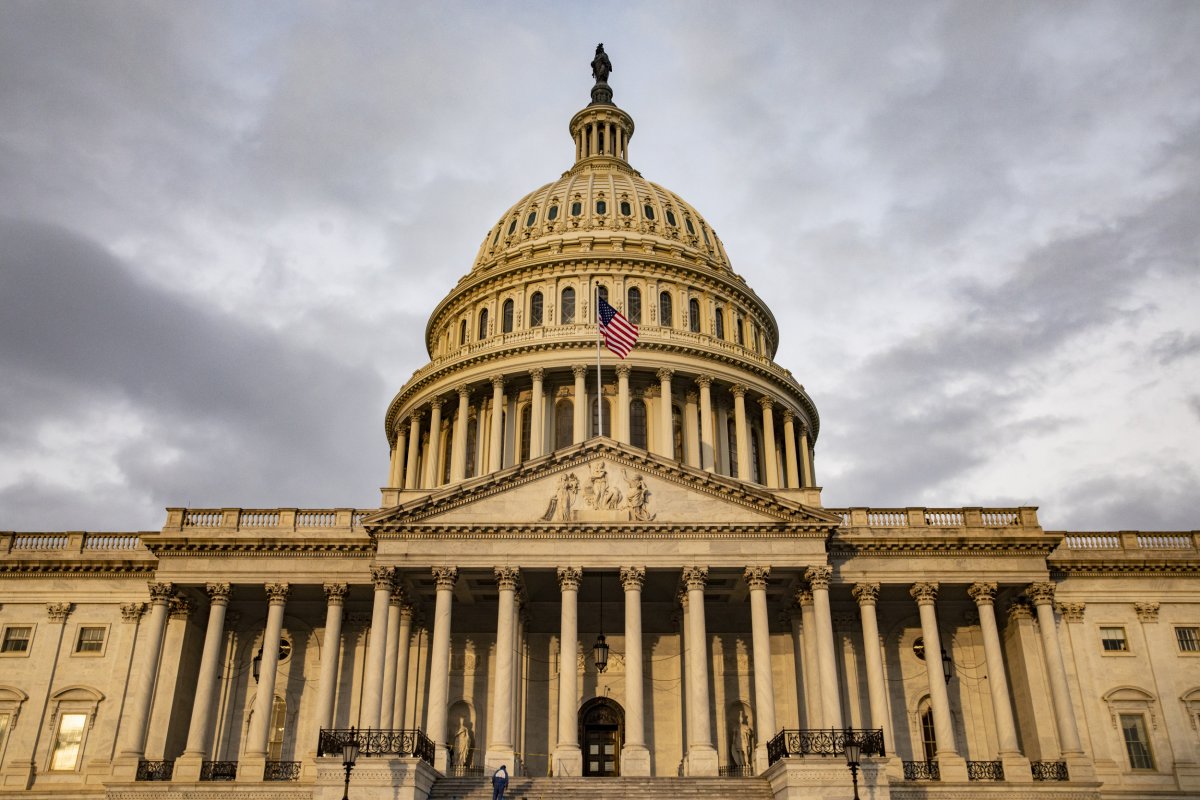Congress is again careening dangerously close to a government shutdown, with federal funding set to run out at midnight on Friday.
Democratic and Republican leaders have expressed their intention to quickly adopt a stopgap spending plan before that deadline; that would kick the can down the road to at least early next year and allow them to refocus on more pressing legislation.
"No one should be concerned about a government shutdown," Senate GOP Leader Mitch McConnell told reporters at the Capitol on Tuesday as negotiations continued.
But things hit a snag just a day later as members of his own caucus threatened to temporarily gum up the process. Their position could prompt a brief weekend shutdown if negotiators didn't agree to challenge President Joe Biden's mandatory COVID-19 vaccine requirements for some workers.
"As long as [U.S. Senate Majority Leader Schumer] makes sure we don't fund that unconstitutional mandate, we'll be okay with unanimous consent," Senator Roger Marshall, a Kansas Republican, told reporters at the Capitol on Wednesday.
Marshall and his cohorts could utilize a procedural tactic to delay a vote, but given broad bipartisan support for a stopgap measure, any shutdown would be resolved within days, without any impact on vaccines. The stopgap bill has no direct connection to policies imposing vaccine requirements, which are currently being challenged in court.
"Some people want to send a message because they object to the vaccine mandate across the board, and they're looking for another opportunity to express themselves," Senate Minority Whip John Cornyn, a Texas Republican, told reporters. "I think we have a number of options short of blocking the [spending bill]."
The Senate requires unanimous agreement to fast-track legislation, which leaders were counting on to meet this week's deadline. Otherwise, objecting senators can kick off a potentially days-long process that would include up to 30 hours of floor debate plus three days before a vote to proceed can take place. Another 30 hours of floor debate could follow before the final vote.
"If every member of this chamber were to use the threat of a shutdown to secure concessions on their own interests, that would lead to chaos," Schumer, a New York Democrat, said from the Senate floor on Wednesday as behind-the-scenes negotiations continued.
Government shutdowns can often be costly, negatively impact the economy through a decrease in sales of goods and services, and disrupt important public programs. The most recent shutdown, which stretched from December 22, 2018, to January 25, 2019, was the longest in U.S. history. It came amid a dispute over funding for a southern border wall that then-President Donald Trump wanted.
The nonpartisan Congressional Budget Office later estimated that the shutdown caused the gross domestic product in the fourth quarter of 2018 to fall $3 billion below what it would have been without a shutdown.
"CBO's estimates do not incorporate other, more indirect negative effects of the shutdown, which are more difficult to quantify but were probably becoming more significant as it continued," the report notes. "For example, some businesses could not obtain federal permits and certifications, and others faced reduced access to loans provided by the federal government."
A more brief shutdown likely would have little noticeable impact on the general public. Federal employees deemed "non-essential" face furloughs during shutdowns but are paid when a spending deal is finalized. Some federal agencies are temporarily shuttered and services become unavailable but resume after Congress resolves its issues.
In recent history, most large federal agencies have been able to sustain their functions during short funding breaks.
But lawmakers also are grappling with terms of the stopgap measure—how long it will extend spending and any additional items it will cover.
While most temporary spending plans are intended to keep funding level, there are exceptions for emergencies. Biden has urged Congress to include recovery funding for states hit by natural disasters, additional COVID-19 funds and money to aid the resettlement of Afghan refugees.

Uncommon Knowledge
Newsweek is committed to challenging conventional wisdom and finding connections in the search for common ground.
Newsweek is committed to challenging conventional wisdom and finding connections in the search for common ground.
About the writer
Elizabeth Crisp is a Washington Correspondent for Newsweek, covering the White House and Congress.
She previously was the Washington Correspondent for ... Read more
To read how Newsweek uses AI as a newsroom tool, Click here.








